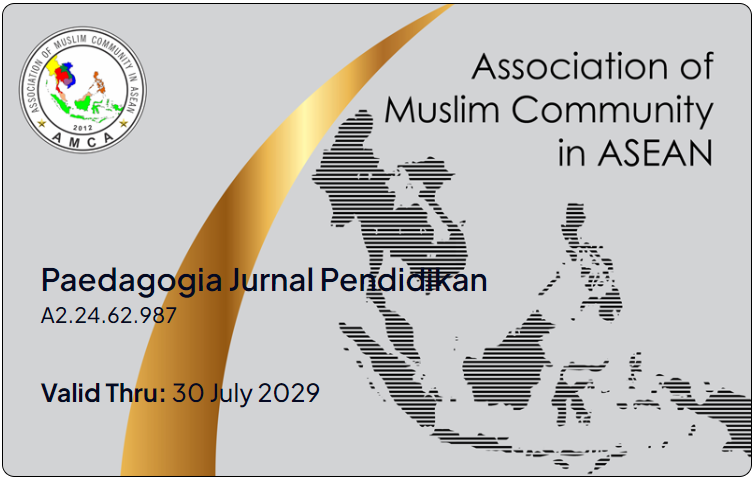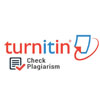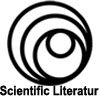Optimizing Students’ Higher Order Thinking Skill through Indonesian English Course Platform
Abstract
As the compulsory subject at the senior high school, English is used for transferring and develop their knowledge, skill, and attitudes in the areas of science, technology, and art. English is crucial for the student in order to help them to understand the oral and written text in detail. Eventually, teachers have to prepare a good strategy to complete the student need of English in the class. Then, the school has HOTS as the strategy for the students. However, students are required to seek additional learning outside of school in order to enhance their learning in school. For this reason, Indonesian English course platform (Ruangguru) becomes the medium to optimize student’ HOTS. This quantitative research discussed 84 students of SMAN 1 Rejang Lebong. In obtaining the data, the eighty-four students of XII grade in academic year 2020/2021 were given a set of questionnaires to get the data whether Ruangguru can optimize students’ HOTS in learning English. The researcher collected the data, then determined the frequency and percentage of the students' responses. According to this study's findings, Indonesian English course platform (Ruangguru) can be a medium to optimize students’ HOTS beside learning English in the classroom. Based on three indicators that is provided by researcher, those are: Analyzing (71.83%), Evaluating (72.26%), and Creating (72.85%). Based on the result, Indonesian English course platform (Ruangguru) helps students to optimize students’ Higher Order Thinking in learning English
Downloads
References
Alshaiji, Hanoof Khalid, and Shaima Jamal Al-saeed. 2021. “Effect of Instructions in Course Book Tasks on Promoting Higher-Order Thinking Skills” 14 (12): 218–26. https://doi.org/10.5539/elt.v14n12p218.
Anderson, Lorin W, and David R Krathwohl. 2001. “A Taxonomy for Learning Teaching and Assessing_ a Revision of Bloom`s Taxonomy of Educational Objetives-Longman. Book” 1.
Apriani, E. 2017. “Utilizing preservice English teachers’ strategies and classroom management at Junior High School in Rejang Lebong Regency”. ENGLISH FRANCA: Academic Journal of English Language and Education, 1(2), 149- 194. http://dx.doi.org/10.29240/ef.v1i2.291
Apriani, E., & Hendra Harmi. 2022. “Investigating the Role of ICT toward Students’ Higher Order Thinking in Writing Skills at Islamic University Students”. 14(2016), 2213–2224. https://doi.org/10.35445/alishlah.v14i1.2260
Apriani, E., Supardan, D., & Umami, M. 2020. “Independent learning: English teachers’ problems in designing a good lesson plan in new normal era at MAN Rejang Lebong” [Paper presentation]. International Conference on the Teaching English and Literature, Bengkulu, Indonesia
Apriani, Eka, Safnil Arsyad, Dadan Supardan, Paidi Gusmuliana, English Tadris, Study Program, Tarbiyah Faculty, et al. 2022. “ICT Platforms for Indonesian EFL Students Viewed from Gender during the COVID-19 Pandemic” 9 (1): 187–202.
Bamford, J., & Day, R. R. 1998. “Teaching reading”. Annual review of applied linguistics, 18, 124-141.
Chinedu, C.C., & Kamin, Y. 2015. “Strategies for improving higher order thinking skills in teaching and learning of design and technology education”. Lagos: Journal of Technical Education and Training (JTET), 7(2), 35-43.
Creswell, J. W. 2012. “Educational research planning, conducting, and evaluating quantitative and qualitative research”. Boston: Pearson Education, Inc.
Feronica, Rani. Ayu, Eka Apriani, Sarwo Edy. 2021. “The Implementation of Higher Order Thinking Skill (HOTS) in Junior High School: Teaching Practice and Problems”. 5(2). https://doi.org/10.29240/ef.v5i2.2589
Hardley, S. 2016. “Seasonality and access to education”. The case of primary education in Sub-Sahara Africa. The University of Sussex.
Hasibuan, Amrin, Sri Setyarini, and Pupung Purnawarman. 2021. “Students ’ Voices on the Teaching of Higher Order Thinking Skills Through WhatsApp-Mediated EFL Online Discussion” 546 (Conaplin 2020): 14–20.
Munawati, Afida. 2019. “The Effectiveness of HOTS (Higher Order Thinking Skill) in Teaching Reading Comprehension.” Education of English as a Foreign Language 2, no. 1: 32–43.
Pregitha, Sherlyi. 2020. “The Use of Ruangguru for Students in Learning English”. Language and Art Department. Faculty of Teacher Training and Education. Jambi University
Putri, Rani, Dwi, Leffy Noviyenty, Eka Apriani. 2020. “STUDENTS’ PERCEPTION OF ENGLISH ONLINE COURSE (RUANG GURU) (A Study of Students’ in SMA 1 Rejang Lebong)”. Institut Agama Islam Negeri Curup
Susanti, Arik, Pratiwi Retnaningdyah, Ade Nila, Puspita Ayu, and Anis Trisusana. 2020. “Improving EFL Students’ Higher Order Thinking Skills Through Collaborative Strategic Reading in Indonesia” 01 (2): 43–52.
Thamrin, Nani Ronsani, and Silvia Agustin. 2019. “Conceptual Variations on Reading Comprehension Through Higher Order Thinking Skills (Hots) Strategy.” English Review: Journal of English Education 7, no. 2: 93.
Thamrin, Nani Ronsani, Pratomo Widodo, and Margana. 2019. “Developing Higher Order Thinking Skills (Hots) for Reading Comprehension Enhancement.” Journal of Physics: Conference Series 1179, no. 1.
Yang, Y. C., Newby, T. J., & Bill, R. L. 2008. “Facilitating interactions through structured web-based bulletin boards: A quasi- experimental study on promoting learners’ critical thinking skills”. Computers and Education, 50(4), 1572-1585.
ŽivkoviĿ, S. (2016). A Model of Critical Thinking as an Important Attribute for Success in the 21st Century. Procedia-Social and Behavioral Sciences, 232, 102-108. https://doi.org/10.1016/j.sbspro.2016.10.034
Copyright (c) 2023 Paedagogia: Jurnal Pendidikan

This work is licensed under a Creative Commons Attribution-NonCommercial 4.0 International License.
The author agrees to the following conditions upon publishing a work to Paedagogia: Jurnal Pendidikan:
1. Each article is licensed under a Creative Commons Attribution-NonCommercial 4.0 International License. The author(s) recognizes that Paedagogia: Jurnal Pendidikan has the right to be the first to publish under a Creative Commons Attribution-NonCommercial 4.0 International License. This license permits the copying and redistribution of this material in any form or format, as well as the composition, modification, and creation of derivative works of this material for any purpose, but Non commercial, as long as the author is credited with the original work.
2. Authors may submit articles separately or arrange for non-exclusive distribution of manuscripts previously published in this journal in other forms (e.g., to the author's institutional repository, publication in books, etc. ), provided that the manuscript is acknowledged as having been published first in the Paedagogia: Jurnal Pendidikan.
3. A copyright submission agreement must attach each approved manuscript prior to publication. You may obtain the form for the copyright submission agreement here (INA) (EN).





























 This work is licensed under a
This work is licensed under a 